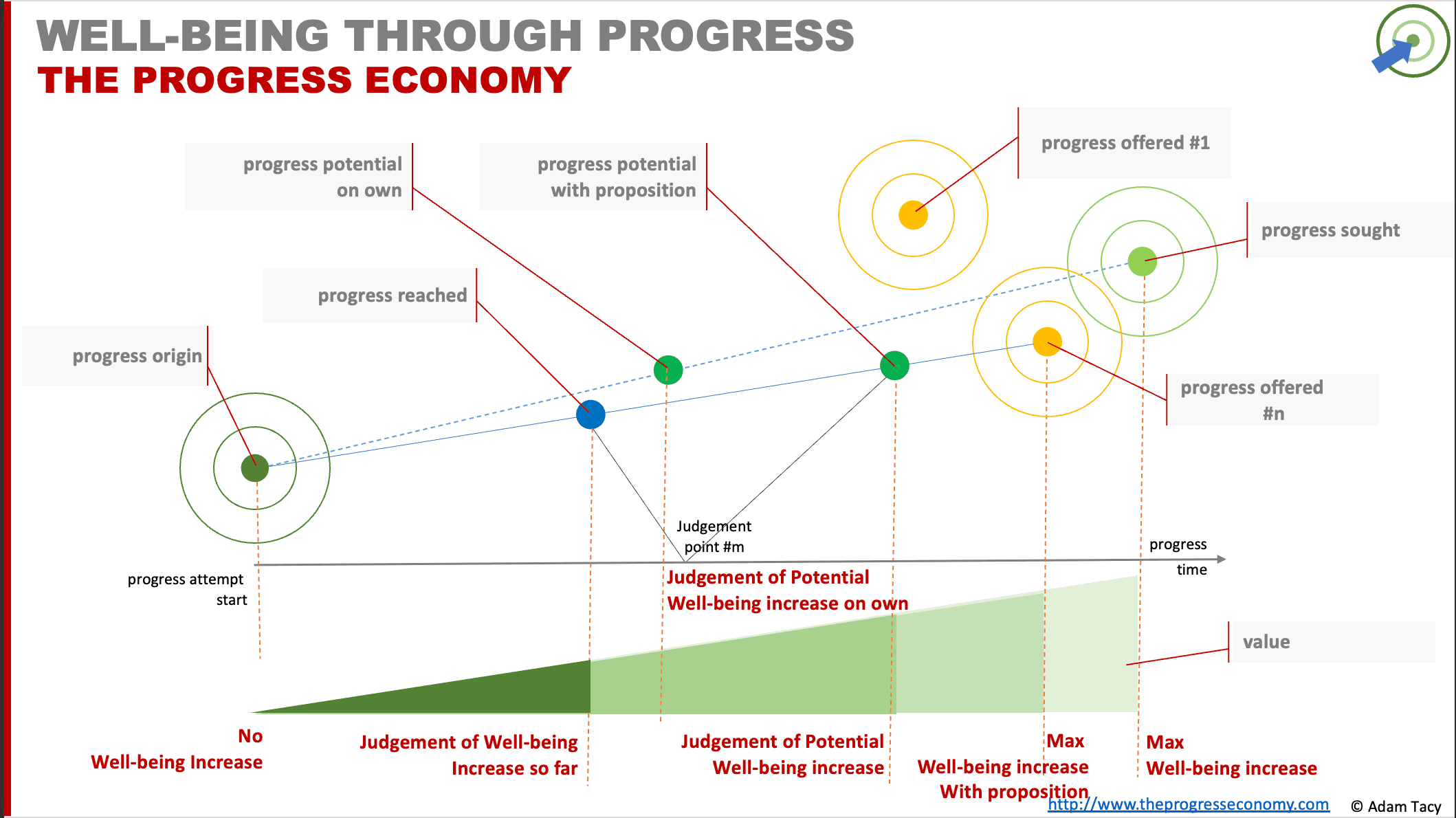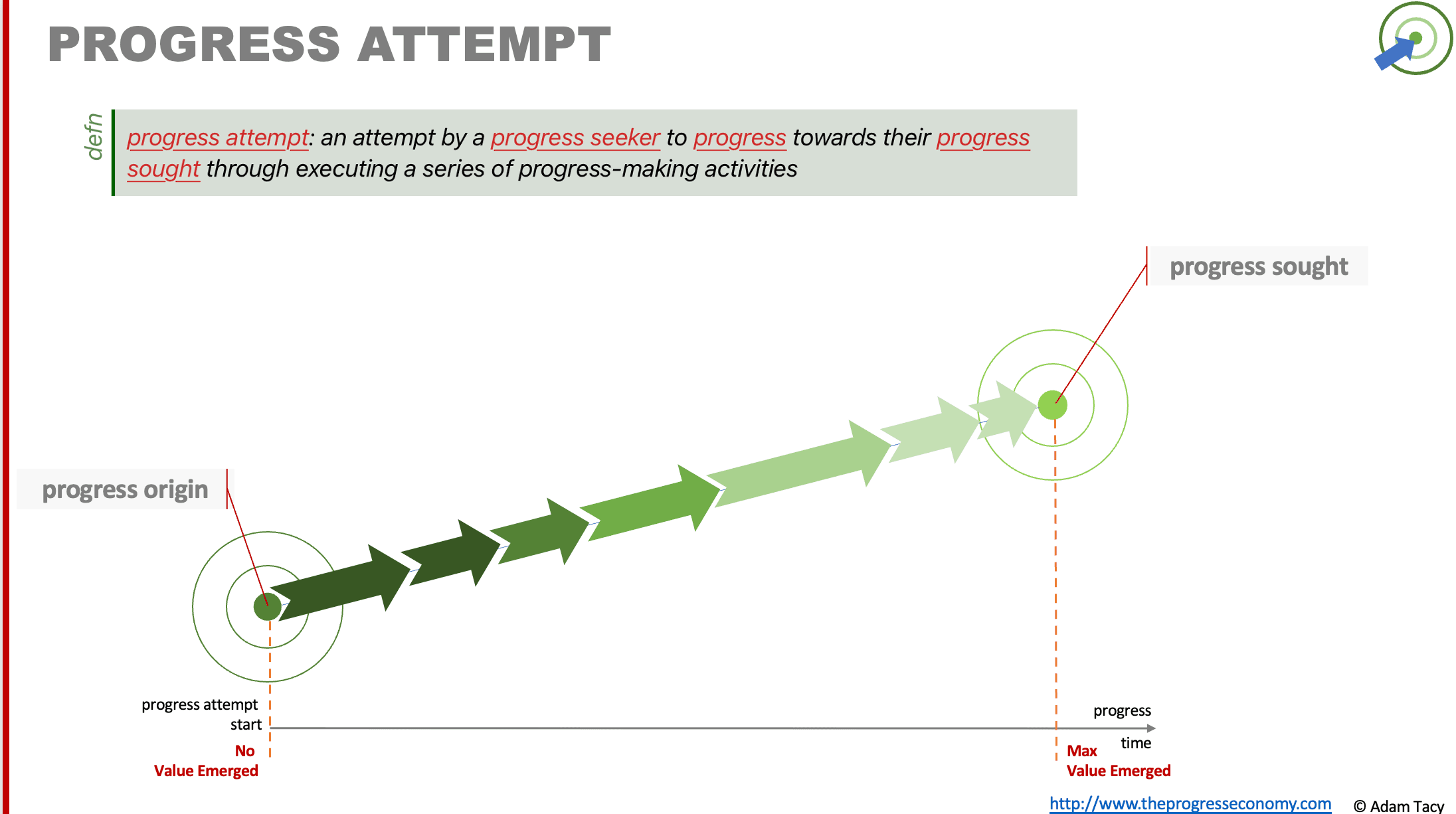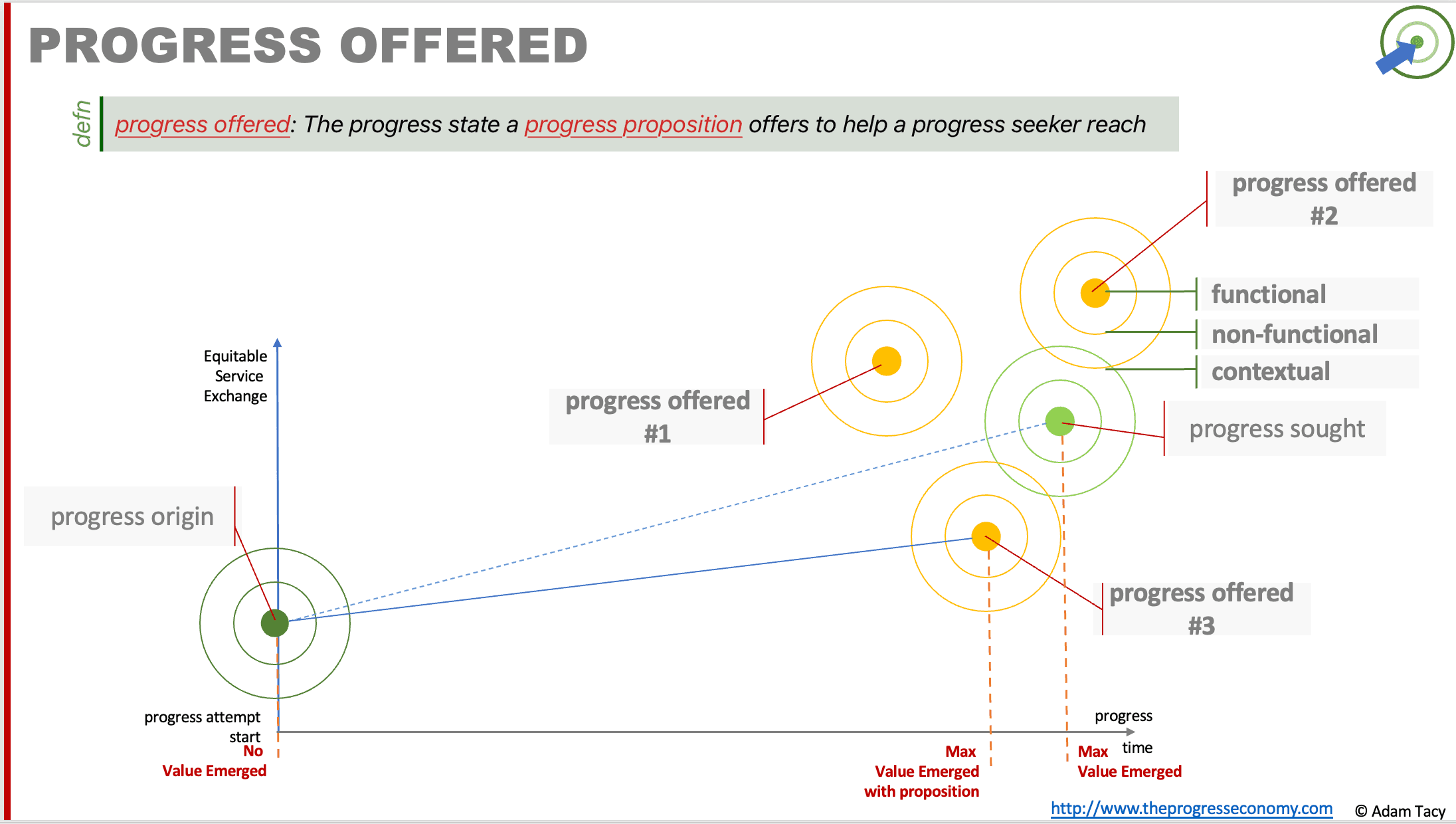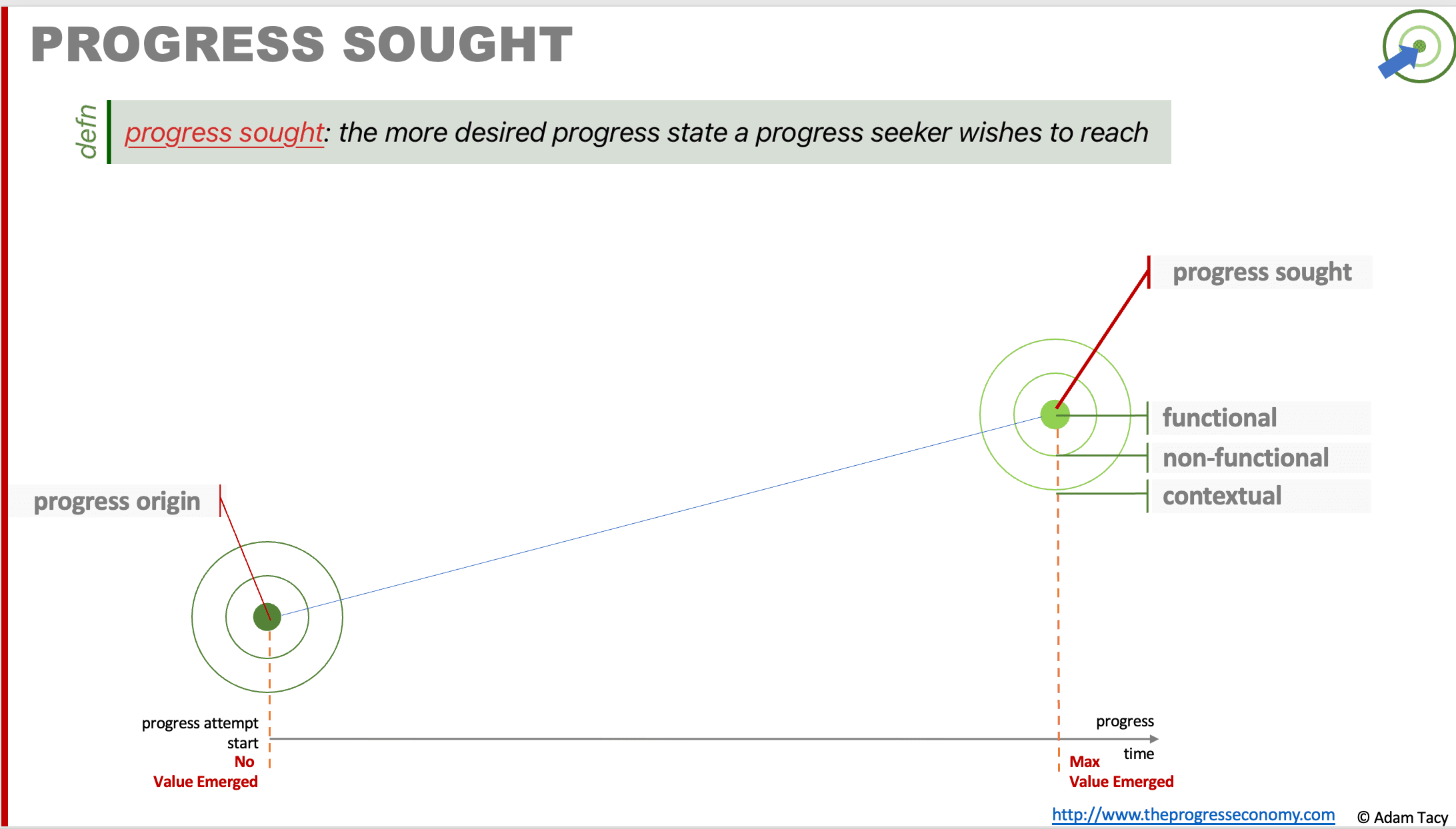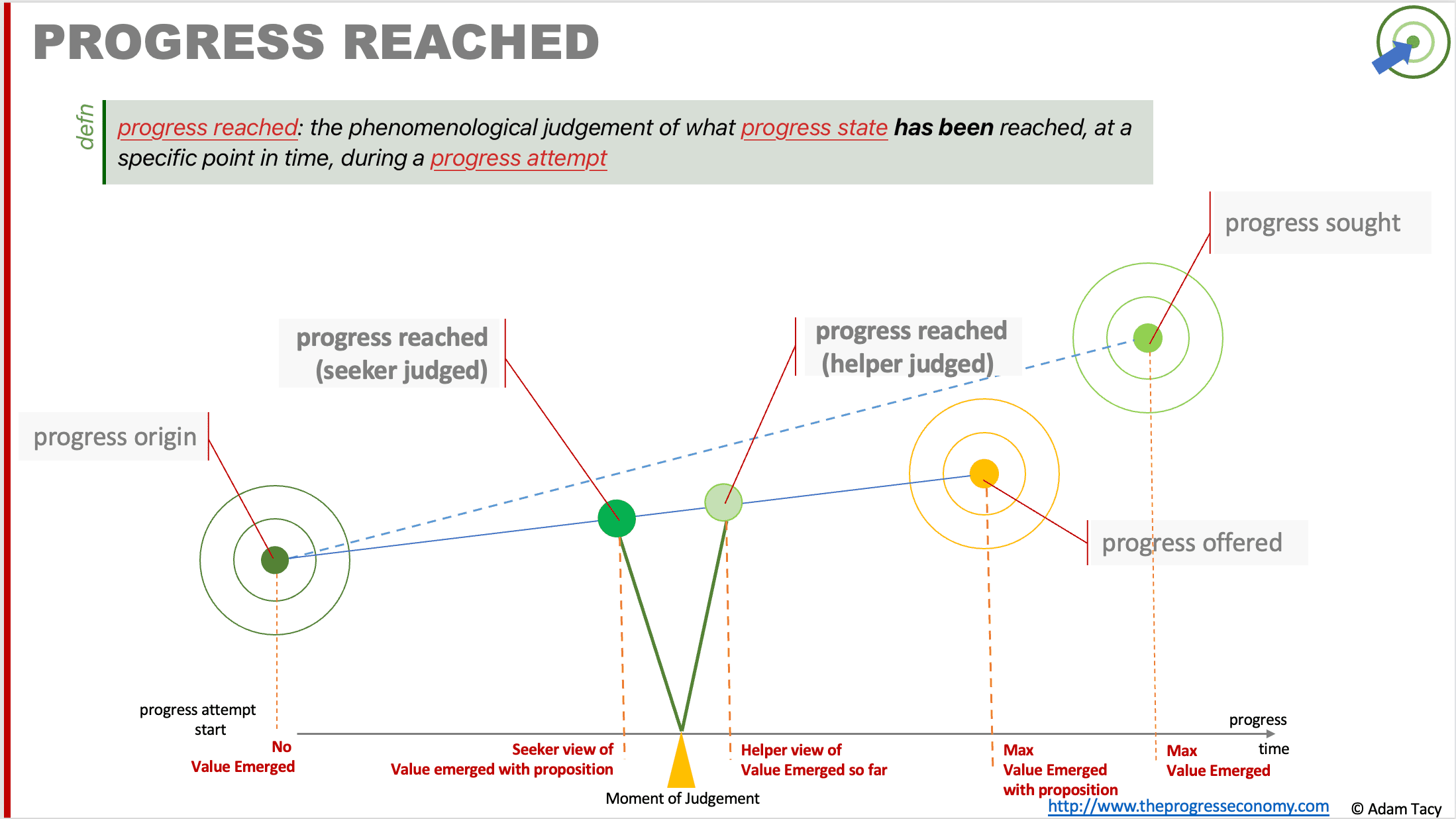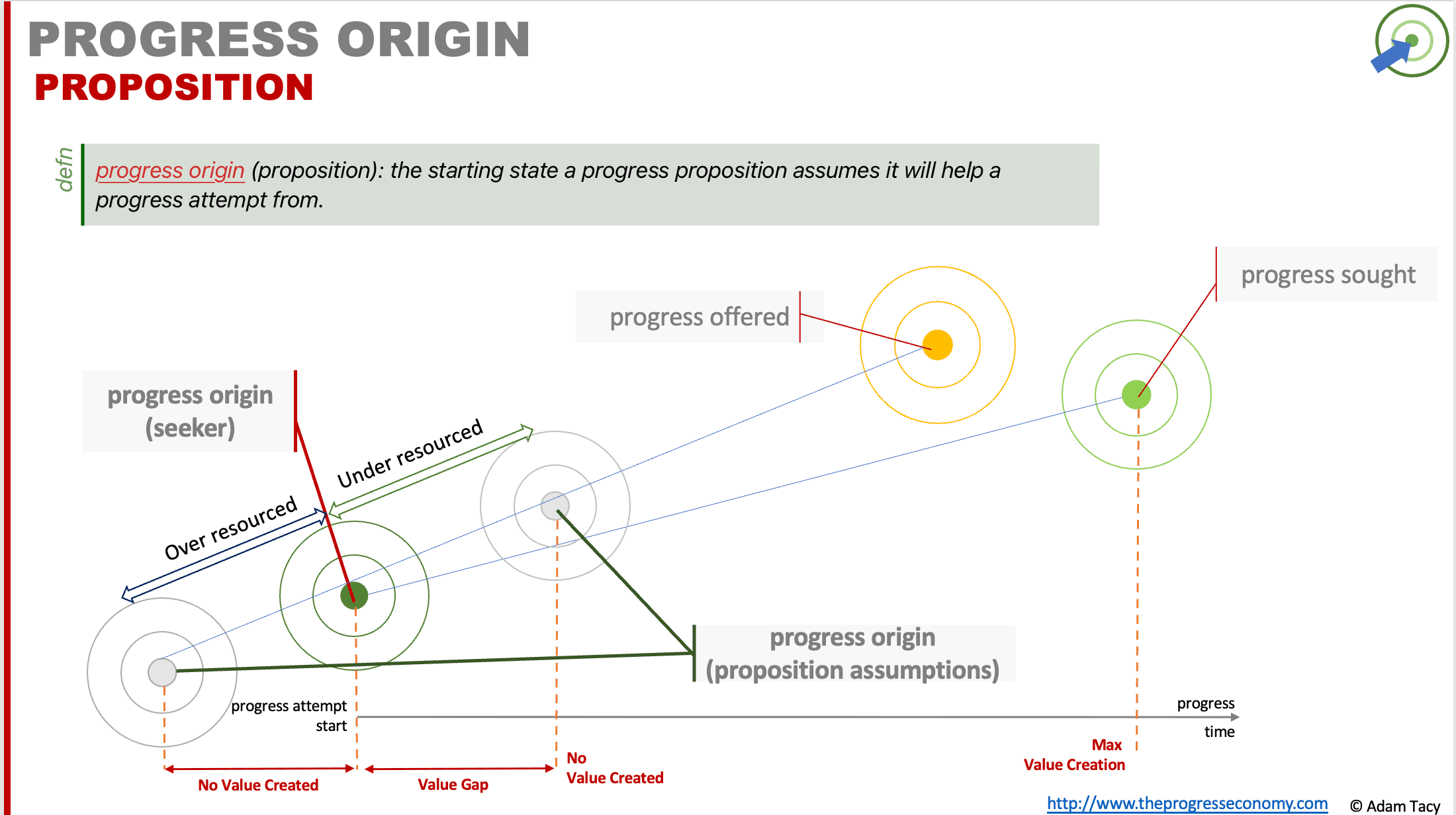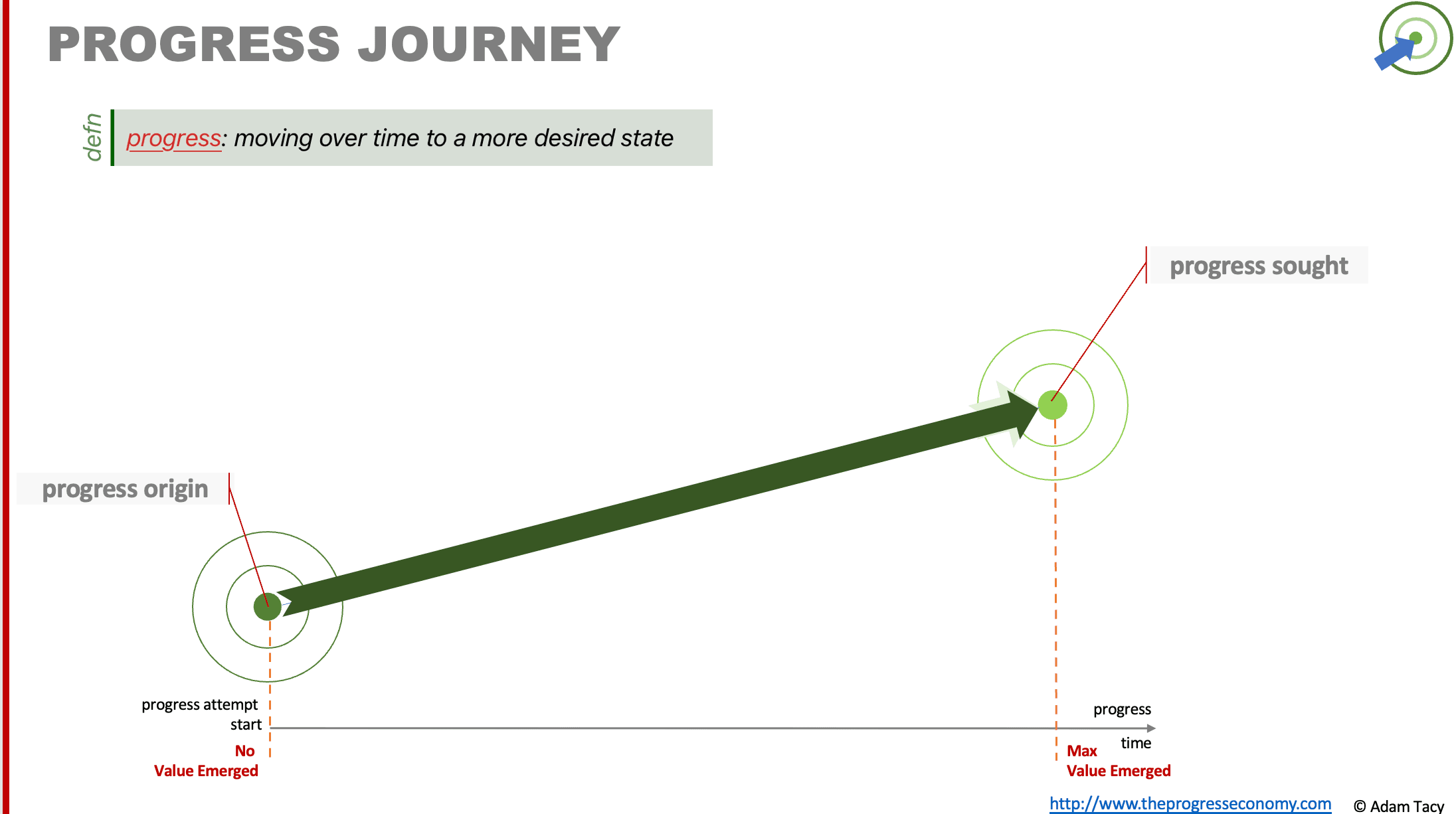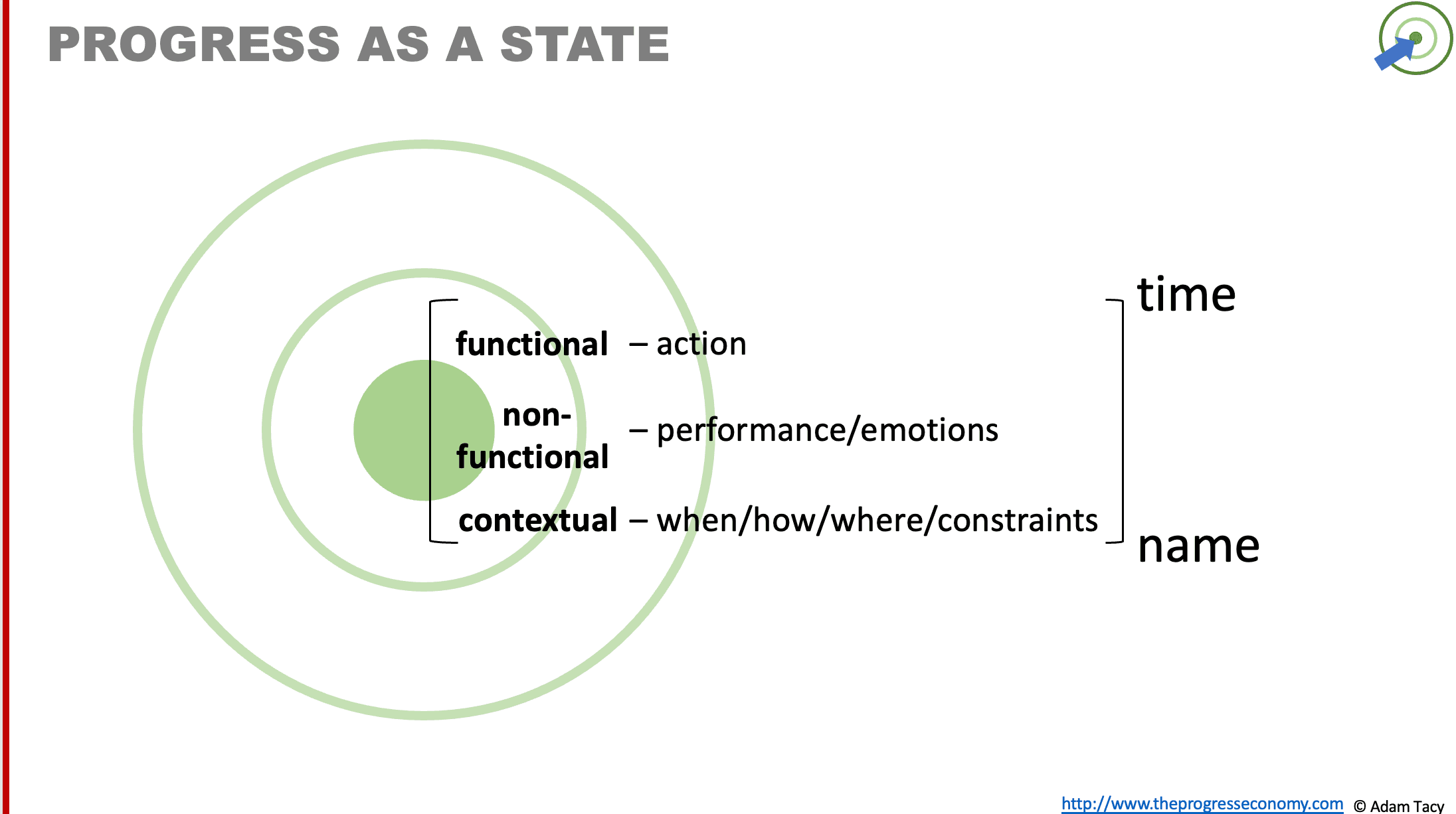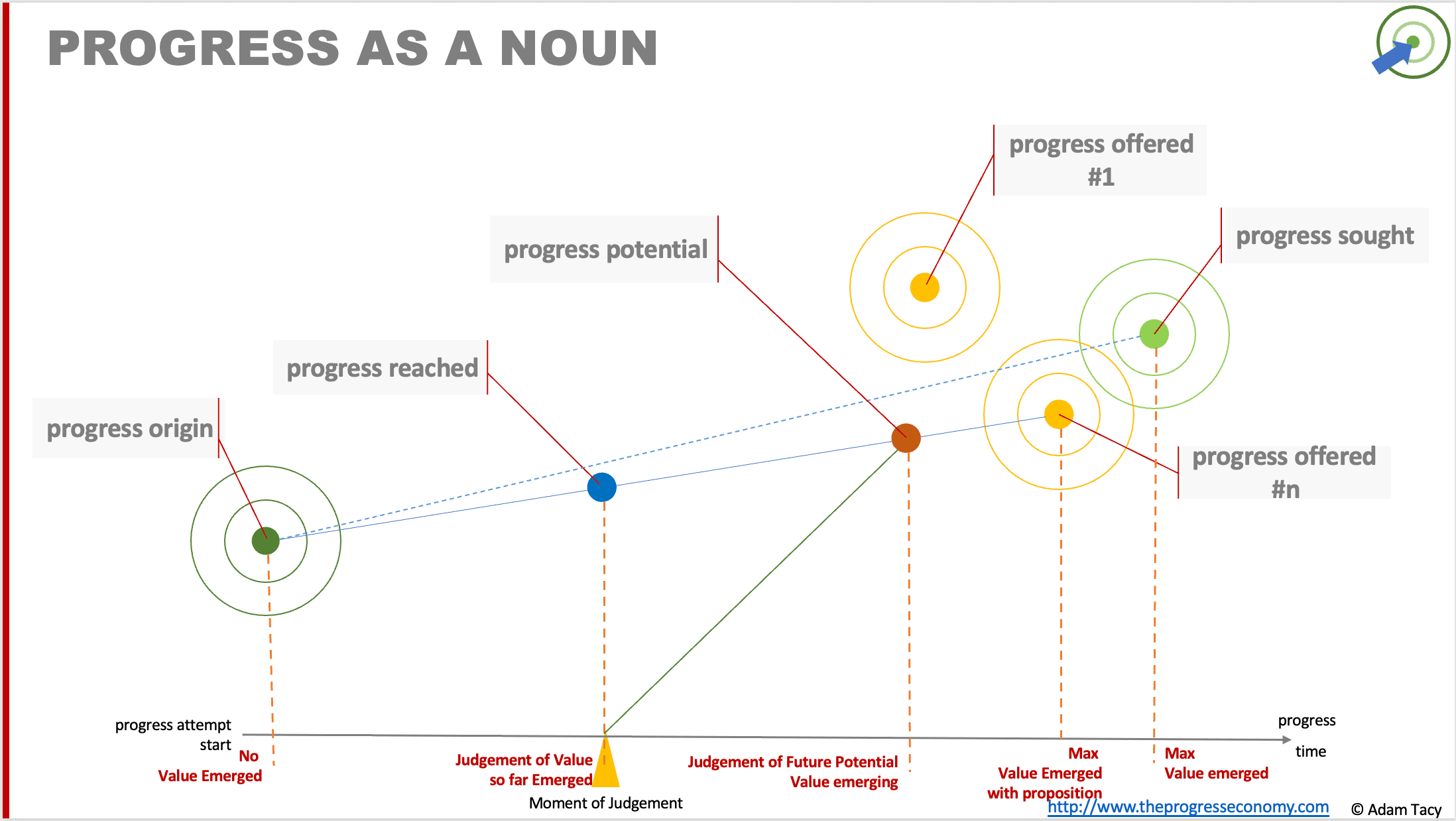well-being-through-progress
The progress economy reframes value creation by focusing on progress rather than static value. Progress is seen as a dynamic movement towards a more desirable state, with value emerging as this progress is made. This approach encourages systematic innovation by addressing progress hurdles and recognizing the complexities and multifaceted nature of value creation.
Progress Attempts
Seekers attempt to make progress by integrating capability-carrying resources in a series of progress-making activities. If they lack the capabilities, progress is affected What we’re thinking Progress attempts are the executional view of progress journeys – a deeper level of understanding that leads to better innovation and sales. They give us the insight on how
Progress Offered
What we’re thinking Progress offered is the progress state – capturing functional, non-functional and contextual aspects – a progress proposition offers to help a seeker reach. Ideally, it should match an individual seeker’s current progress attempt’s progress sought. However, such customisation can significantly raise the equitable exchange progress hurdle. To address this challenge, helpers often segment seekers
Progress Potential
What we’re thinking Progress potential is the progress state that an actor phenomenologically judges, at particular moment in time, could be reached in a progress attempt. It is regularly judged by progress seekers as part of their decision process to start and continue progress attempts, alone or with propositions. Progress helpers predict it for their
Progress Sought
What we’re thinking Progress sought is the more desirable progress state – capturing functional, non-functional, and contextual elements – that a progress seeker wishes to reach. Upon reaching progress sought, the seeker likely recognises maximum value. It complements progress origin, giving us a fuller picture of a seeker’s journey and the gaps towards that. It also has
Progress Reached
What we’re thinking Progress reached is the progress state that an actor phenomenologically judges to have been reached at a specific point during a progress attempt. These judgements relate to value in two ways. First it indicates how much value an actor feels has emerged by that point. Secondly, we find that for emerged value
Progress Origin
Progress origin captures an individual seeker’s starting state for the current progress attempt. It also captures the starting state a proposition offers to help make progress from. These two origins are likely to differ.
Progress as a verb and a state transition
The progress economy’s underlying premise: making progress to their more desired state is everything a Progress Seeker wants. What we’re thinking In the progress economy we believe Progress Seekers are trying to make progress with everything in their life. They are trying to get from their current progress origin to their more desired state (progress
Progress as a State
Progress has three, equally important, dimensions – functional, non-functional and contextual. Not understanding one or more will sink your innovation, sales, and growth. What we’re thinking Progress is a state – a snapshot comprising three elements, namely: Identifying and understanding all three elements is critical for understanding seeker’s desires, making progress, progress propositions, value, and
Progress as a noun
Several progress states – the waypoints and phenomenological determinations – are important enough in the story of progress that we specifically name them What we’re thinking In the Progress Economy, some progress states are significant enough to name explicitly. They serve as: These states form the basis for the story of how value emerges from
